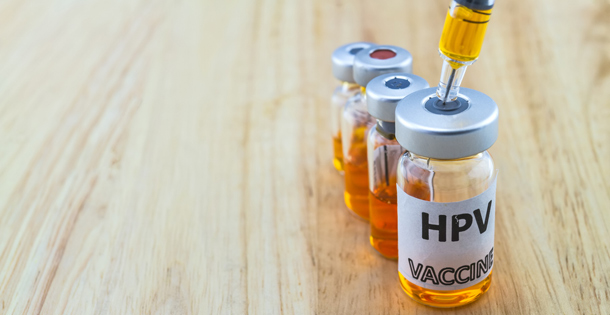“Your Weekly Checkup” is our online column by Dr. Douglas Zipes, an internationally acclaimed cardiologist, professor, author, inventor, and authority on pacing and electrophysiology. Dr. Zipes is also a contributor to The Saturday Evening Post print magazine. Subscribe to receive thoughtful articles, new fiction, health and wellness advice, and gems from our archive.
Order Dr. Zipes’ new book, Damn the Naysayers: A Doctor’s Memoir.
Two weeks ago I wrote about the need for vaccinations to prevent common infections with viruses such as measles, mumps and whooping cough. I didn’t have space to discuss vaccination against a highly important and more controversial infection: the human papillomavirus (HPV). More than 200 related HPV viruses exist, with about 40 having potential transmission through sexual contact.
HPV infection remains one of the most common sexually transmitted diseases in both males and females. Many infections do not cause symptoms, and nine out of ten disappear spontaneously in two years. However, HPV types 16 and 18 have been implicated in causing cancers and HPV 6 and 11 in causing warts. Worldwide, HPV infection is responsible for half a million cases of cancer and more than a quarter of a million deaths every year, with the highest incidence in developing countries lacking resources to promote prevention or provide treatment. Nearly 80 million Americans (about one in four) are infected with HPV, with over 6.2 million new cases annually. HPV causes 32,500 cancers in American men and women each year. HPV vaccination can prevent about 30,000 from ever developing.
Effective HPV vaccines have been available for almost a decade. More than one hundred countries have adopted vaccine programs for females, and many are extending the indications to include males. However, widespread adoption of vaccination remains controversial.
While state-mandated immunization programs have increased the number of children vaccinated, many state legislatures do not require universal HPV vaccination. Objections include the concern that the vaccine might encourage sexual contact at earlier ages or promote higher risk sexual practices. To me, the argument that the vaccine will prevent sexually related cancers appears far more persuasive.
The Centers for Disease Control and Prevention (CDC), together with other professional associations, recommends that children 11 or 12 years old get two shots of HPV vaccine six to twelve months apart. In general, HPV vaccine is recommended for young women through age 26, and young men through age 21. The overwhelming evidence favors administration of the vaccine to prevent the precancerous and malignant disease conditions caused by HPV infection. The risks of the vaccine are within the range of complications noted with other vaccination programs and should not prevent vaccine administration. Parents and health care workers need to be educated that the benefits of HPV vaccination far outweigh any risks.
Become a Saturday Evening Post member and enjoy unlimited access. Subscribe now



